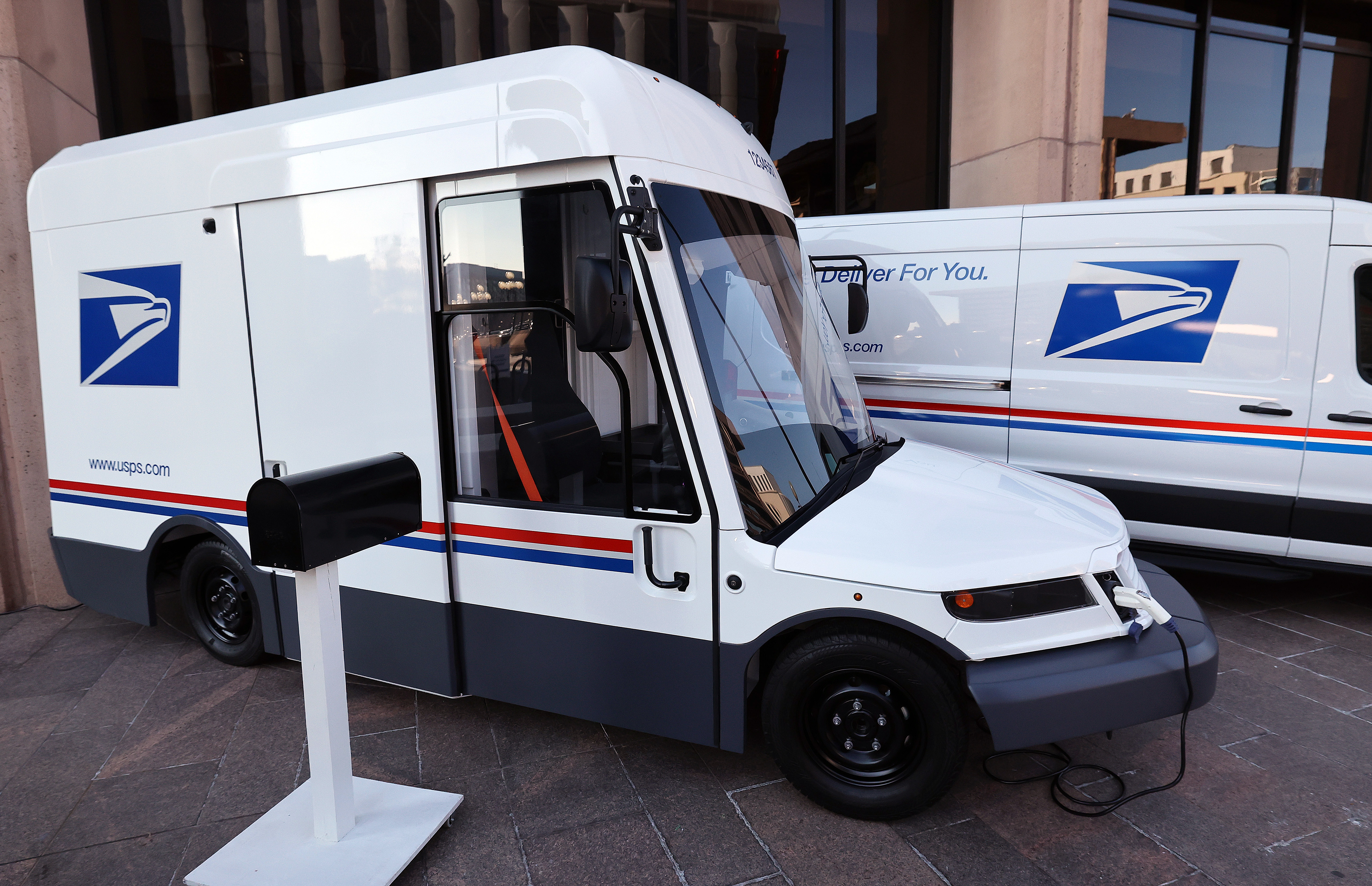New Generation Postal Trucks May Look Goofy, But Mail Carriers Love Them
The electric trucks are larger, quieter and cooler than their predecessors
We love a good postal truck around here, and apparently the long-delayed, strangely designed electric postal trucks are pretty dang good, according to the mail carriers that use them every day.
The old Grumman Long Life Vehicle indeed lived a long life. Those trucks went into service in 1987, making them elder millennials. And as a fellow elder millennial, I can tell you none of us are running as well as we used to. Older Grumman LLVs, for instance, now suffer from reoccurring fires. They were only meant to serve for 25 years, and they're long past replacement age.
It's not just safety that comes with the new duck-bill trucks, but comfort for the mail carriers, as the Associated Press reports:
Even tall postal carriers can stand up without bonking their heads and walk from front to back to retrieve packages. For safety, the vehicles have airbags, 360-degree cameras, blind-spot monitoring, collision sensors and anti-lock brakes — all of which are missing on the Grummans.
The new trucks also feature something common in most cars for more than six decades: air conditioning. And that's key for drivers in the Deep South, the desert Southwest and other areas with scorching summers.
"I promise you, it felt like heaven blowing in my face," Stonum said of her first experience working in an air-conditioned truck.
Richard Burton, another driver, said he appreciates the larger payload area, which can accommodate bigger packages, and the fact that he doesn't have to crouch, helping him avoid back pain. The old trucks also had a habit of breaking down in traffic, he added.
Brian Renfroe, president of the National Letter Carriers Association, said union members are enthusiastic about the new vehicles, just as they were when the Grummans marked a leap forward from the previous old-school Jeeps. He credited DeJoy with bringing a sense of urgency to get them into production.
"We're excited now to be at the point where they're starting to hit the streets," Renfroe said.
The entire fleet is not electric however, and the new gas-powered trucks get woefully bad gas milage. In fact, in April of 2022 90 percent of the new trucks were internal combustion engine vehicles. Initially, the postal service announced it would buy at least 25,000 EVs in the initial order of 50,000 new delivery vehicles from Oshkosh — up from about 10,000. But the Oshkosh deal is for 165,000 new mail trucks, or NGDVs, over a ten-year period. Postmaster General Louis DeJoy told AP that the fleet now includes 45,000 EV trucks.
It took over a dozen states and environmental groups suing the postal service to get the number of EVs in the fleet up. Still, thanks to the inclusion of electric vehicles the postal service predicts it can shave off 40 percent of its carbon emissions by 2030.
